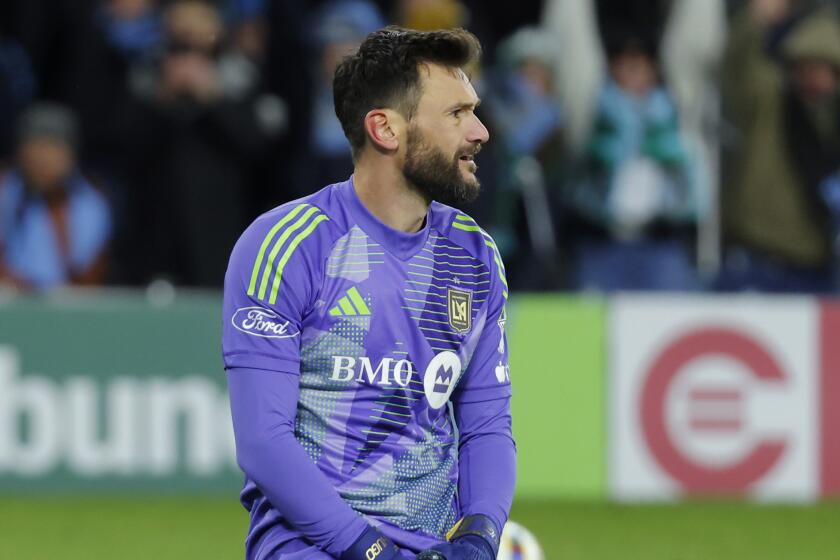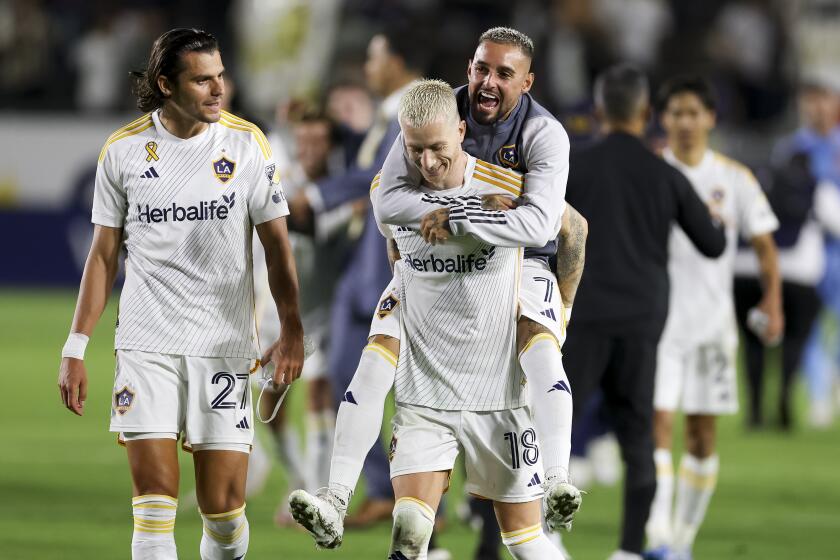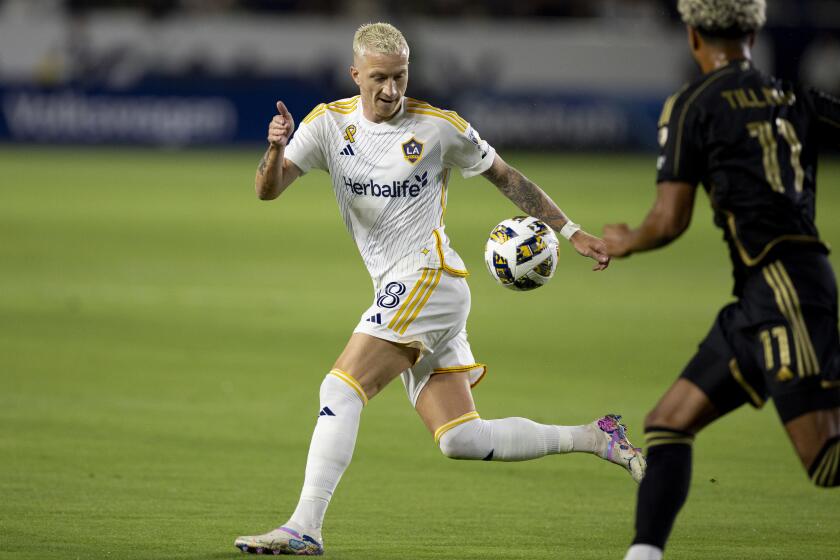Mexico is back to soccer heights
No matter what happens today in Puerto Ordaz, Venezuela, Hugo Sanchez has achieved what he set out to accomplish.
By guiding Mexico to the semifinals of the Copa America tournament after last month leading it to the final of the Gold Cup, Sanchez has restored Mexico to what it sees as its rightful place in the pecking order of North American soccer.
“El Tri” is once again No. 1.
American fans can stomp their feet and squeal all they want, but the simple fact of the matter is that even though the United States defeated Mexico in the Gold Cup final at Chicago just over two weeks ago, Mexico has reclaimed the high ground.
And so, even if his team loses to heavily favored Argentina today, Sanchez can hold his head high. Typically, he has not been able to resist taking a shot at his predecessor, Ricardo Lavolpe.
“In four months, I have managed to do what others did not do in four years,” he said in a radio interview with Televisa that was published by La Jornada.
“We’ve done a lot. Our work rate has improved and the ideology is clear. The tactical scheme has been defined since the first game and the players’ understanding of it has improved.”
The confidence that Sanchez exhibits is also shown by some of his players, with Chicago Fire-bound playmaker Cuauhtemoc Blanco showing the most swagger and even boasting that not even Argentine standouts Lionel Messi, Juan Roman Riquelme, Carlos Tevez and Juan Sebastian Veron can intimidate him.
“Personally, I’m not afraid of Messi, or of [Diego] Maradona, or of Pele,” the name-dropping Blanco told Reuters. “Everyone has two arms, two legs and two eyes, so there’s no reason to be frightened. On the contrary, we should be more motivated.”
Mexico’s run to the semifinals contrasts sharply with the under-strength U.S. team’s ignominious first-round ouster. The difference in the two rivals’ approach to the Copa America shows that the U.S. was setting itself up for a painful fall right from the start.
Mexico knew coming in that it would be playing five-time world champion Brazil in its opening game and planned accordingly. Sanchez realized that winning that game would mean far more on a global level than winning the Gold Cup.
As a result, the Mexicans -- taking full advantage of such missing Brazilian stars as Ronaldinho and Kaka -- beat Brazil, 2-0, earning worldwide headlines in the process. They then defeated Ecuador, tied Chile -- thereby ousting the U.S. before it had even played Colombia -- and routed Paraguay.
“It was all planned,” Sanchez said. “From the first game of the Gold Cup. It wasn’t a surprise beating Brazil. The way we are playing is not a surprise. It’s hard work paying off.”
The U.S., meanwhile, knew that it would be playing 14-time South American champion Argentina in its first game but still opted to send a second-string team to Venezuela. When Coach Bob Bradley left -- or was forced to leave -- Landon Donovan off his roster, it was a sign that the towel had been tossed in even before the first whistle had sounded.
The party line from U.S. Soccer was that winning the Gold Cup was all-important because it qualified the winner for the FIFA Confederations Cup in South Africa in 2009, the year before the World Cup is played in South Africa.
Those making that argument also pointed out that European teams were under no obligation to release American players for a Copa America tournament in which the U.S. was only an invited guest and that getting young Major League Soccer players experience in high-level competition would pay off down the road.
The result was that the Americans were thrashed by Argentina, beaten by Paraguay and lost to Colombia. They were outscored by a combined 8-2 and headed home with their tail between their legs. In 11 short days, the golden glow of the Gold Cup victory had been reduced to red-faced humiliation.
Around the world, instead of seeing the U.S. as the champions of CONCACAF, soccer followers once again saw a rerun of 2006 and the equally pitiful three-games-and-out exit from the World Cup in Germany.
It might have been otherwise. Donovan and several other MLS players should have been required to take part. Bradley should have worked with European club coaches to get three or four other experienced players released, even at the cost of not calling upon them for some of the World Cup qualifiers next year.
But the U.S. let the opportunity slip, while Mexico, also an invited guest and also without all its European-based players, grasped it with both hands.
Few expect that Mexico will defeat Argentina. There is some history there. Argentina beat Mexico in the final of the 1993 Copa America in Ecuador, defeated it on penalty kicks in the semifinals of the 2005 Confederations Cup in Germany and scored an overtime win in the second round of the 2006 World Cup.
In addition, Mexico probably will be without its most talismanic player, forward Nery Castillo, who injured an ankle after scoring twice in the team’s 6-0 quarterfinal win over Paraguay.
But win or lose today, Sanchez will return home smiling.
“Our prestige as a team is growing every day,” he said.
--




